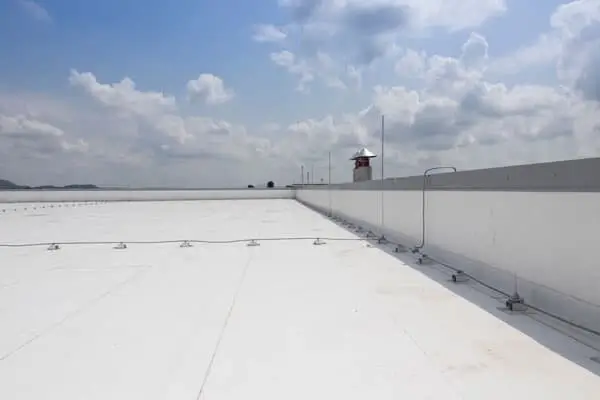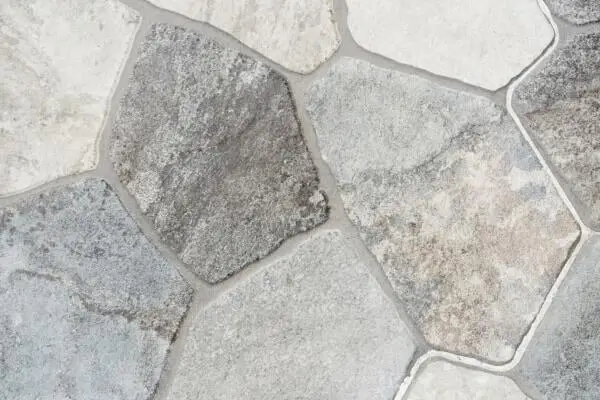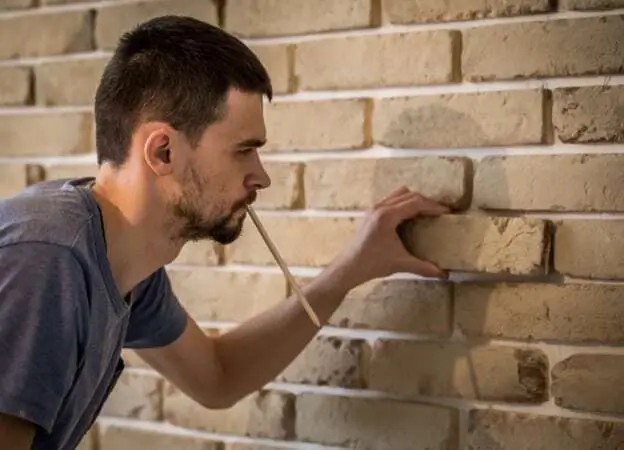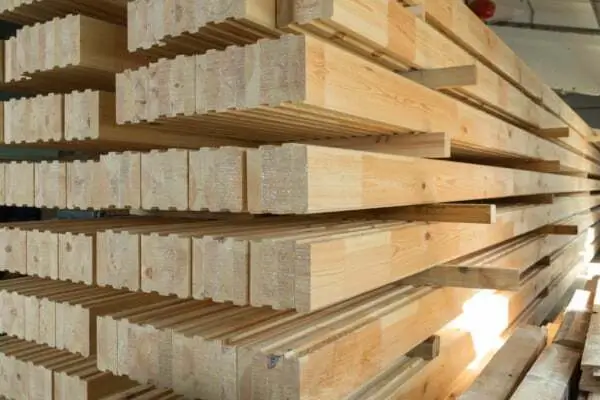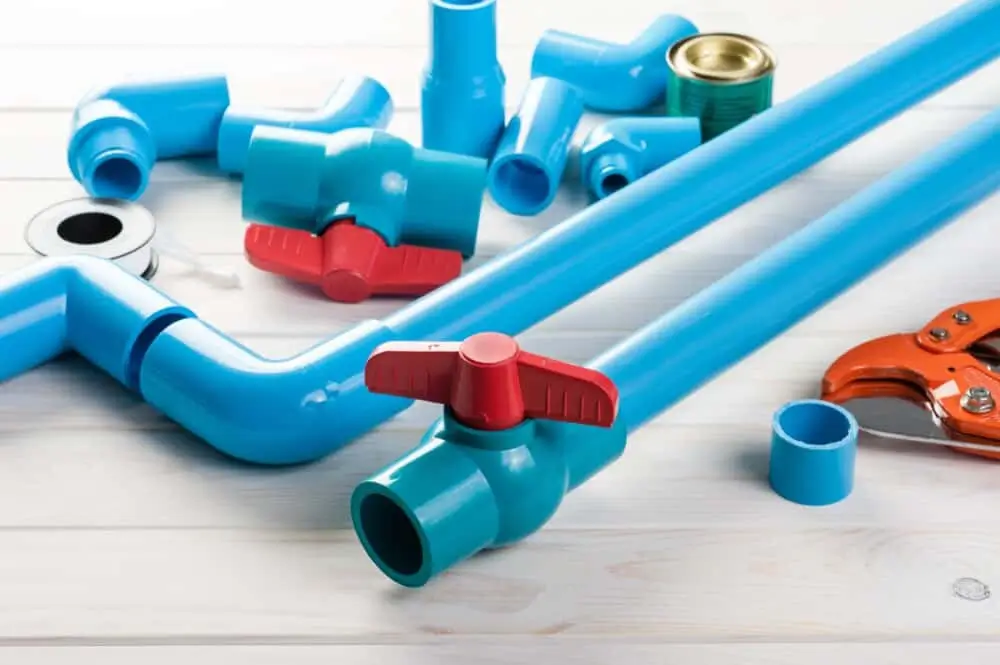Natural stone tile adhesive
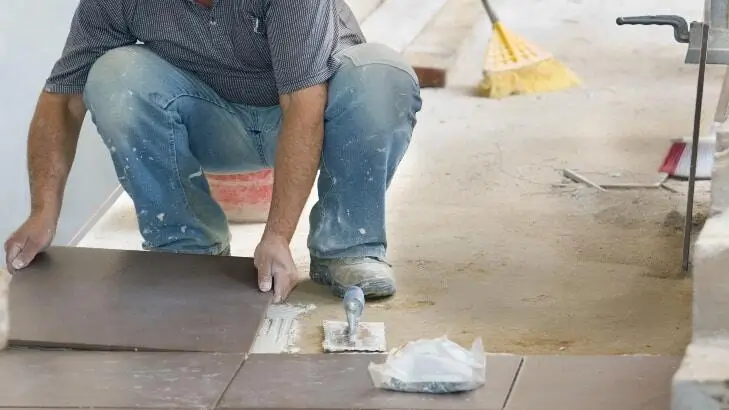
Flawless tiling with natural stone tile adhesive
Natural stone tiles are extremely attractive and create a special atmosphere, however, they are not the easiest to work with due to the delicate nature of natural stone tile. The most important factor to consider is the natural stone tile adhesive which initially determines the success of the tiling work. However, next to the right type of adhesive for tiles, other factors such as natural stone tile type, application method and grouting system also contribute to succesfull tiling.
Not only does the best tile adhesive guarantee great end result but also faster and easier application. When you choose for the most suitable natural stone tile adhesive for your project, you know what to expect from the result and your process gets topped up with some speed and efficiency!
Here you will learn about the different natural stone tile types, get infomation on substrates and suitable tile adhesive types, discover the different types of tile adhesive, and find out the difference between interior and exterior tile adhesive.
Consider the needs of natural stone when choosing an adhesive for tiles
When tiling with natural stone, there are a couple of factors that must be taken into account in order to achieve the best end result. Natural stone tile is not simply one type of tile, but the term covers all natural stone tiles ranging from limestone to marble and granite, each requiring a specific type of adhesive for tiles. The stone tile types can be divided into groups followingly:
- Calcareous: includes all natural stone tile types that contain calcium carbonate such as limestone, marble and some sandstone types.
- Non calcareous: these are the stone types that do not contain calcium carbonate. Non calcareous stones include for example granite, sandstone and basalt.
- Slate: this is a metamorphic stone formed over a long period of time. Slate results from a mix of other stone types and minerals which become one under high pressure.
The natural stone types differ from each other by several ways, which means that they require different types of tile adhesive. The most important properties of the stone that should be considered when choosing glue for tiles include:
- Porosity: for example limestone and sandstone are very porous by nature requiring a natural stone adhesive which does not get absorbed into to the tile. On the other hand, marble and granite are very dense by structure and therefore, a greater range of tiles adhesive systems is available for them.
- Movement: temperature extremes and fluctuation affect natural stone tile types differently. The behavior of the tiles is also different whether they are part of an interior or exterior. When the stone is likely to be affected by temperature fluctuation (exterior applications, floor heating etc.) flexible stone fixing adhesive is recommended.
- Color: the tiles also vary by color: some are lighter than others and for instance limestone and marble can even have a translucent look to them. Therefore, as a rule of thumb, never apply grey natural stone adhesive to light colored tiles. Nor should you use spot fixing as the stone adhesive may form shadows and color changes on the tile, not to mention that spot fixing can lead to cracks and breakages as the load is not equally distributed.
The substrate affects the choice of glue for tiles
Not only is it important to consider the needs of the specific natural stone tile types, but also those of the substrate the tiles are going to be laid on. Also here the porosity of the substrate plays an important role.
It is important to know whether the substarte is porous. Porous tiles may absorb regular tile adhesive types into the pores, which results in weaker bond and possible adhesive failure. On the other hand very dence and flat substrates require a stronger adhesive as there are no pores to promote adhesion. For example tile to metal adhesive is one that provides good adhesion on hard substrates.
The load bearing capacity of the substarte must also be considered. For example when tiles are applied to an existing tiling, a special tile on tile adhesive is needed. The weight of the new tiles must also be considered for the sake of the substrate. Additionally the location of the substrate matters: interior and exterior tile adhesive systems differ from each othe in regards og flexibility and temperature resistance. For example an exterior wall tile adhesive is generally stronger but likely to be more flexible than similar product intended for interior use.
TIP: most manufacturers name their products by the type of tile and substarte they are suitable for. When laying tiles on metal, look for a tile to metal adhesive and if applying tiles to existing tiling, opt for a tile on tile adhesive. On the other hand, some products are named by the tile type they are made for, such as marble tile adhesive.
The most common types of tile adhesive for natural stone
There are several types of tile adhesive for natural stone which all can result in a faster and easier process as well as a stunning end result. There is no best tile adhesive for natural stone that works for all projects; the best glue for tiles is defined by the tile type, environment and substrate.
The most common natural stone tile adhesive types include the following.
High strength construction epoxy tile adhesive
Epoxy is one of the strongest and most durable adhesive of all times. Therefore, in the right formulation, it is also suitable as a tiles fixing adhesive. Most types of epoxy tile adhesive are flexible, which means that the finished tiling is less likely to be affected by temperature extremes and fluctuation. Epoxy wall tile adhesive is applied in thinner layers than epoxy tile adhesive for floors, yet they both result in extremely strong bonds.
Cement based thin set and thick bed tile adhesive systems
Cement-based adhesives or mortar exists as thin set and thick bed tile adhesive. These are suitable for most types of natural stone tiles as long as they are not absorbent. Generally mortar is available in white and grey colors. Thick bed tile adhesive is common on floors that are often wet (exterior, bathrooms, swimming pools etc.). Thin set adhesives, in turn, can be applied on both floors and walls. When looking for an easy tile adhesive, cement based products are a considerable option.
Custom-made polymerized glue for tiles
When it comes to polymer adhesives, a lot is possible. Also for natural stone tiles, there are multiple flexible polymerized adhesives available which can be tailored to fit the purpose perfectly. For more information on what is possible with this type of adhesive for tiles, do not hesitate to contact us!
The right natural stone fixing adhesive for a specific environment

The most common applications of natural stone tiles are interior and exterior walls and floors. When laying floor or wall tiles made of natural stone outside, it is important to consider the ideal application conditions: not too cold and not too humid. Most stone fixing adhesivesystems require a certain ambient temperature and humidity percentage to be able to harden. Interior tiling has more adhesive options as the temperature and humidity are not likely to exceed recommended values.
Temperature extremes and fluctuation affect the choice of tiles fixing adhesive
When choosing glue for tiles, it is also crucial to consider which factors or elements are likely to affect the finished tiling. Especially temperature extremes and fluctuations should be taken into account, as they may cause tile movement, possibly damaging to the stone adhesive. For exterior tiles, a flexible adhesive is recommended as the stones are likely to be affected by low and high temperatures as well as rapid fluctuation due to difference between day and night temperature. For example exterior wall tile adhesive is almost predominantly flexible to some extent. In interiors the temperature fluctuation is usually not great enough to affect the tiling or the tile adhesive unless floor heating is installed under the tiles. Natural stone tiles above floor heating always require a flexible natural stone glue in order to prevent cracking due to movement and extend the lige expectancy of the tiling.
Natural stone glue for wall and floor tiles
Regarding the adhesive, it matters whether the tiles are laid on walls or floors as they require either vertical or horizontal bonding. For floors, it is crucial to consider the air needs of the adhesive. As there is not much air under floor tiles, the adhesive should be able to cure through other means to guarantee shorter curing times. For walls, in turn, it is important that the adhesive is strong enough to hold the weight of the tile on a vertical surface. Also the weight of the tile should be considered. When looking for a strong solution for heavy wall tiles, an epoxy tile adhesive is an option.
Sound insulation adhesive for tiles
Some applications also require special properties from the tile adhesive. One of such cases is when sound insulation is needed. Naturally, sound insulation could be taken care of by installing a membrane or using mats, however, a mortar-like adhesive can also do the job more easily and at lower cost.
A special sound insulation tile adhesive usually consists of advanced polymers, rubber fillers and reinforcing fibers. The fibers provide strength and the rubber fillers ensure flexibility. Additionally, the advanced formulation of the adhesive protects the tiling from cracks that originate from the substrate. Find out more about sound insulation adhesives for natural stone tiles by contacting us.
Cost efficient sound insulation with adhesive
One of the most important benefits of realizing sound insulation using an adhesive is its efficiency. Sound insulation tile adhesives are easy and fast to apply as well as cost efficient. Labor costs are further reduced due to the fact that the tile adhesive and sound insulation are applied in one go using a single system.
Find the best tile adhesive for natural stone
As there are many natural stone tile types and possible stone fixing adhesive systems to realize the tiling with, it is not always an easy job to pick the best tile adhesive. New technologies and chemistries allow for smart natural stone glue types which speed up the process and result in beautiful tiling. However, sometimes a more traditional adhesive does the job best. In case you are curious for the options or are looking for a trusted adhesive for natural stone tiles, hit the button below and contact us!
Discover more solutions for building & construction
What solution are you looking for?
We are specialized in the building and construction. Need the best products or advice? Then please leave your details and we will get in touch.

